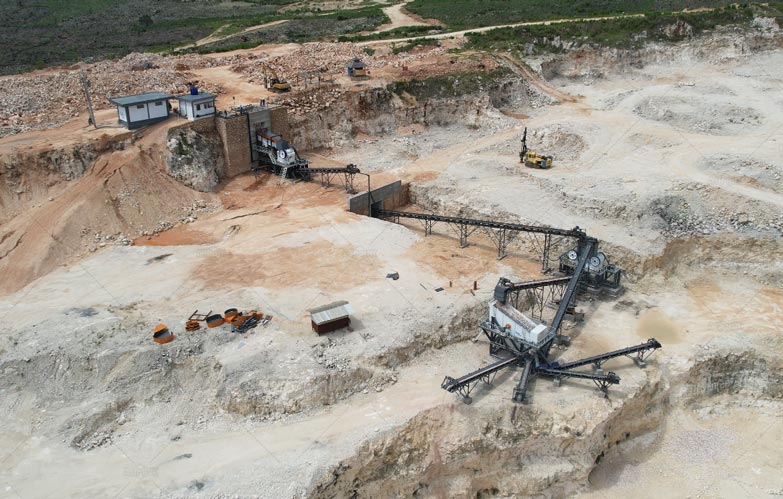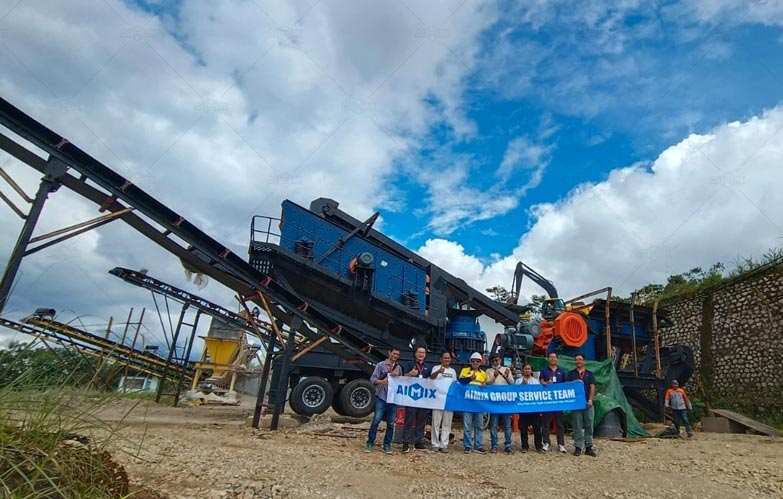
The rapid pace of urbanization and economic growth across Latin America has created a strong demand for modern infrastructure. Roads and bridges are vital for connecting cities, rural communities, and industrial hubs, making construction projects in this sector a top priority for many governments and private investors. One of the critical elements in achieving these ambitious infrastructure goals is the reliable supply of high-quality aggregates, produced efficiently through modern aggregate crusher plants and advanced stone crusher plants.
These plants are essential in transforming raw materials into the building blocks of durable roads and bridges. In countries like Brazil, Peru, Colombia, and Chile, the need for upgraded highways, logistics corridors, and bridge systems is directly linked to the efficiency and quality of aggregate production.
Aggregate is the most consumed raw material in construction after water. It includes crushed stone, gravel, and sand, all of which are crucial in creating asphalt, concrete, and base layers for roads and bridges. Without a stable aggregate supply, construction projects face higher costs, delays, and quality concerns.
This is why modern aggregate crusher plants(planta trituradora de agregados) play such a critical role in Latin America. They ensure a continuous and reliable flow of materials to construction sites, allowing projects to meet deadlines while maintaining strict quality standards.

Roads require aggregates with precise size and strength characteristics to ensure long-term durability under heavy traffic. A modern stone crusher plant(planta trituradora de piedra) uses advanced crushing technology to achieve consistent particle sizes and minimize weak or flaky materials. This precision ensures stronger pavement layers and reduces the risk of premature road failure.
By sourcing materials close to project sites, contractors save on transportation costs. This is especially important in Latin America, where terrain can be mountainous and logistics complicated. Setting up a local stone crusher plant allows for faster delivery of aggregates, reducing overall construction costs.
Modern crusher plants integrate dust suppression, energy-efficient motors, and water recycling systems. These features align with Latin America’s growing emphasis on environmentally responsible construction while also reducing the long-term operating costs of aggregate production.
Bridges face some of the harshest structural demands in civil engineering. They must withstand heavy vehicle loads, temperature fluctuations, and environmental stress. Aggregate crusher plants support these projects by supplying durable crushed stone that meets stringent engineering requirements.
Bridge decks and supports require concrete with high compressive strength. Aggregate from reliable crusher plants ensures the structural integrity needed for bridges to remain safe and functional for decades.
Since bridge projects often take place in remote or challenging environments, portable or semi-mobile aggregate crusher plants are an advantage. These units can be installed near riverbanks or mountainous regions, cutting transport times and ensuring steady material supply.
In countries like Chile, bridge projects are critical for connecting communities divided by rivers and valleys. The contribution of modern crushing plants in producing reliable aggregates supports these projects, ultimately boosting trade and mobility. It is not surprising that investment in stone crusher Chile(trituradora de piedra chile) operations has increased as the demand for stronger infrastructure grows.
While aggregate plants provide numerous benefits, the industry also faces challenges. High energy costs, fluctuating raw material prices, and regulatory requirements for environmental compliance can increase operating expenses. Additionally, smaller contractors may find it difficult to invest in advanced crushing technology.
On the other hand, opportunities are abundant. Governments are prioritizing road and bridge construction as part of economic recovery plans, and international investors are showing strong interest in Latin American infrastructure. The growing adoption of intelligent automation and energy-efficient crusher plants also presents new possibilities for reducing costs and improving productivity.

Mobile stone crusher plants are ideal for projects in remote regions, where transporting aggregates from distant quarries is not practical. Their flexibility allows contractors to move equipment as projects advance.
The use of smart monitoring systems in aggregate crusher plants is expected to expand, offering contractors better control over material quality and equipment performance. This ensures greater efficiency and reduces unexpected downtime.
With global pressure to reduce carbon emissions, crusher plants that incorporate renewable energy and advanced recycling processes will gain a competitive edge. These innovations align with both sustainability goals and cost reduction strategies.
The contribution of aggregate plants to road and bridge construction in Latin America cannot be overstated. By ensuring a steady supply of high-quality aggregates, aggregate crusher plants and stone crusher plants help contractors deliver durable, cost-efficient, and sustainable infrastructure projects. From highways in Brazil to bridges in Chile, these facilities are the backbone of regional connectivity and economic development. As technology continues to advance, intelligent and environmentally friendly crushing systems will play an even greater role in shaping the future of Latin America’s infrastructure.